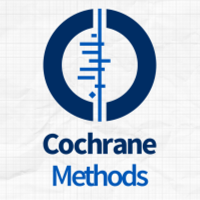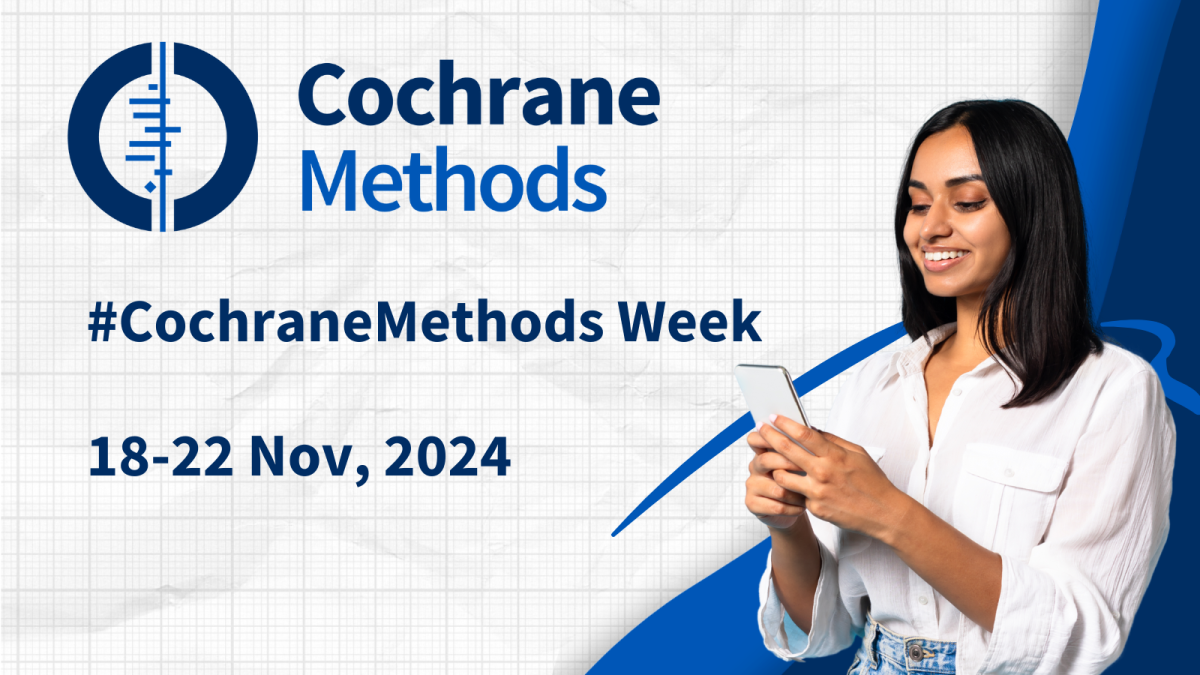
Cochrane has, for over 30 years, built a reputation for producing high-quality evidence syntheses that inform healthcare decisions worldwide. Cochrane reviews are recognized as one of the world’s most trusted sources of evidence, making them essential resources for healthcare professionals, policymakers, researchers, as well as patients and carers.
A cornerstone of Cochrane’s work is its rigorous methodological approach. The methods employed by Cochrane are designed to ensure that the evidence synthesized is transparently and rigorously appraised. By defining and following best practices in evidence synthesis, Cochrane ensures its reviews not only meet high quality standards but also provide actionable insights for improving healthcare outcomes.
At the center of this are Cochrane Methods, which play an essential role in guiding the production of these high-quality systematic reviews. The established clear standards and comprehensive guidelines that authors follow ensure thorough and transparent evidence synthesis. Cochrane’s educational resources, including the Cochrane Methodology Handbooks, webinars, and tutorials, also equip researchers and practitioners with the tools to apply these methods effectively.
"Within Cochrane’s methods community, we are constantly learning from each other. From our Methods Groups who research and define best practice, to teams involved in implementation, and the commitment of authors and editors in adhering to the standards, everyone brings something valuable to the table. The community Cochrane has built is one of collaboration and shared knowledge, and with the commitment to innovate in methods in Cochrane’s new Scientific Strategy, we are excited to see what comes next."
- Ella Flemyng, Head of Editorial Policy and Research Integrity
To support and strengthen these efforts, Cochrane draws on the expertise of the Cochrane Methods Network, which consists of 18 specialized Methods Groups. Each group focuses on a specific method or review type relevant to Cochrane reviews. They are involved in methods research, defining best practice and supporting implementation in Cochrane.
“My favourite thing about Cochrane is the opportunity to collaborate with folks from across the globe with a shared purpose of advancing systematic review methods to improve patient care.”
- Tahira Devji, Patient-Reported Outcomes Methods Group

Cochrane's Scientific Strategy 2025–2030 underscores the commitment to methodological innovation in evidence synthesis. Areas of key focus include methods adaptation as we diversify our reviews and included evidence, living evidence, and the potential integration of artificial intelligence (AI) into evidence synthesis processes.
As the pace of new research accelerates, keeping systematic reviews up-to-date with the latest evidence has become increasingly vital. Cochrane is at the forefront of this evolution with our leadership in living systematic reviews —a dynamic approach that ensures evidence remains current and relevant. This innovation aligns closely with the Wellcome Trust's recent announcement of a £45 million investment to accelerate "living evidence synthesis" and emphasizes our commitment to providing the most current, reliable evidence to inform healthcare decisions. By keeping evidence up to date, healthcare professionals and policymakers can make informed decisions based on the most relevant and timely information. Cochrane’s focus on living evidence not only enhances the impact of our work but also shows our proactive response to the changing needs of modern healthcare.
A key element in pioneering evidence synthesis methodology is the integration of AI. By automating time-consuming tasks such as data extraction, analysis, and even the synthesis of findings, AI could help streamline the review process, allowing researchers to focus on interpreting results and making informed recommendations. AI tools could help make the synthesis of large datasets more efficient, ensuring that healthcare professionals have access to comprehensive, timely evidence. However, these advancements also emphasize the importance of maintaining ethical standards and ensuring that AI applications in evidence synthesis remain transparent and accountable. To ensure the responsible use of AI, Cochrane is collaborating with other evidence synthesis organizations and actively engaging with stakeholders and the research community to establish best practices.
Looking ahead, Cochrane’s focus on continuous improvement, collaboration, and methodological excellence will remain key to its mission of improving health outcomes worldwide.

Join us on Instagram, LinkedIn, and X as we celebrate Cochrane Methods Week, 18-22 November 2024! This week is dedicated to showcasing the robust methodologies that underpin Cochrane’s trusted evidence and exploring innovations shaping the future of evidence synthesis. Participate by following our accounts and using the hashtag #CochraneMethods to join the conversation and ask questions
- Monday 18 Nov - Cochrane Methods Groups Discover the areas of expertise within Cochrane Methods Groups and their vital contributions to evidence synthesis methods.
- Tuesday 19 Nov - Resources and Training Explore Cochrane’s wide range of resources and training opportunities.
- Wednesday 20 Nov - Cochrane Handbooks Learn how Cochrane Handbooks uphold methodological rigour and guide the production of high-quality evidence.
- Thursday 21 Nov - Interactive Day Let's pause for some fun! Engage with quizzes, polls, and other fun activities to test your knowledge of Cochrane Methods.
- Friday 22 November - Looking Ahead Explore how Cochrane continues to innovate methodology and find out how you can get involved in Cochrane’s methodological work and the publishing process.
